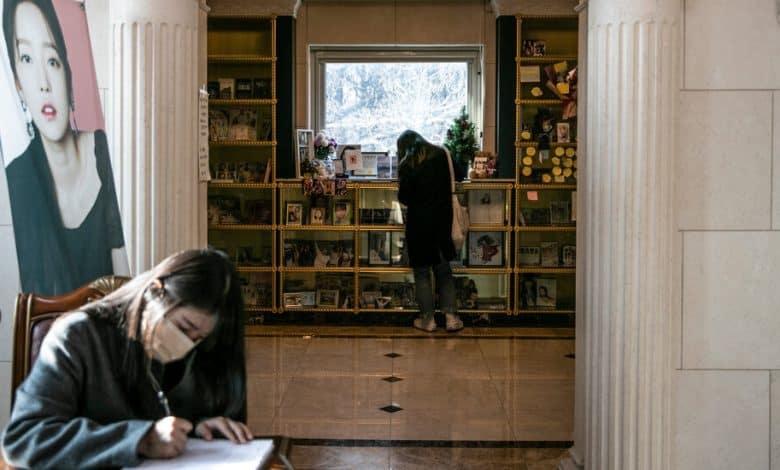A K-Pop Star’s Lonely Downward Spiral

The K-pop star looked utterly drained. Her face scrubbed of makeup, Goo Hara, one of South Korea’s most popular musical artists, gazed into the camera during an Instagram livestream from a hotel room in Japan. In a fading voice, she read questions from fans watching from around the world.
“You going to work, fighting?” one asked.
In halting English, she gave a plaintive answer: “My life is always so fighting.”
By the time she climbed into bed at the end of the livestream in November 2019, she had reached a low point after a lifetime of struggle. As a child, she was abandoned by her parents. Her father at one point attempted suicide. After grueling training, she debuted in a K-pop group at 17, early even by the standards of the Korean hit-making machine.
With the group, Kara, she found international fame, and Ms. Goo became a regular on Korean television, eventually anchoring her own reality series. But with celebrity came ravenous attacks on social media from a Korean public that is as quick to criticize stars as it is to fawn over them. Following a sordid legal fight with an ex-boyfriend, the harassment only intensified, as commenters criticized her looks, her personality and her sex life.
On Nov. 23, 2019, less than a week after her Instagram appearance, she posted a photo of herself tucked in bed, with the caption “Good night.”